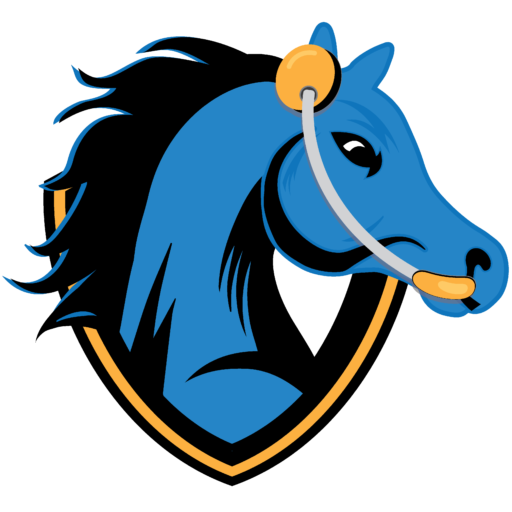EPPIC
[vc_row content_aligment=”center” css=”.vc_custom_1614014892376{margin-right: 50px !important;margin-left: 50px !important;}”][vc_column width=”1/2″ css=”.vc_custom_1614796006552{margin-right: 50px !important;margin-left: 50px !important;}”][vc_empty_space height=”64px”][vc_empty_space height=”64px”][vc_column_text]
The Esports Personal and Performance Improvement Curriculum (EPPIC) is designed to enhance the social and emotional development of esports athletes through the incorporation of Social Emotional Learning (SEL) best practices, sports psychology, and wellness into their esports practice regimen. Students participate in lessons and activities that align with the social and emotional competencies developed by the Collaborative for Academic, Social, and Emotional Learning (CASEL).
[/vc_column_text][vc_empty_space][/vc_column][vc_column width=”1/2″][vc_empty_space height=”64px”][vc_video link=”https://www.youtube.com/watch?v=gaRbSmDhmG8&t” el_width=”70″ align=”center”][/vc_column][/vc_row][vc_row content_aligment=”center” css=”.vc_custom_1614015792921{margin-right: 100px !important;margin-left: 100px !important;}”][vc_column width=”1/4″][vc_single_image image=”783″ img_size=”full”][vc_empty_space][/vc_column][vc_column width=”3/4″][vc_empty_space][vc_empty_space][vc_empty_space][vc_column_text]
Why Does SEL Matter For Esports Athletes?
Esports provides an excellent opportunity to teach SEL to athletes. By design, video games are engaging, which provides athletes with an environment that they can be motivated to learn in. (Dickey, 2005). Not only are emotions displayed within video games, they also evoke emotions within the player. With the ability to evoke emotions, players are able to practice handling their own emotions, along with understanding emotions of others (Gallup & Serianni, 2017). Beyond those attributes, gaming can be an inclusive place where students who may not have a home on any other type of team can find a place to belong. Video games provide diverse learners with the ability to be challenged while simultaneously practicing social and emotional skills that they may have trouble with. Diverse learners are able to potentially receive these positive aspects through gaming; entertainment, stress relief, escape/immersion, positive social experiences, achievement, creativity, story/role playing, and sensory and mental stimulation (Mazurek, Engelhardt, & Clark, 2015).
Academic Performance
SEL interventions that address CASEL’s five core competencies increased students’ academic performance by 11 percentile points, compared to students who did not participate in SEL programs. Students participating in SEL programs also showed improved classroom behavior, increased ability to manage stress and depression, and better attitudes about themselves, others, and school.
Future Impact
SEL programming can have a positive impact up to 18 years later on academics, conduct problems, emotional distress, and drug use. There are statistically significant associations between SEL skills in kindergarten and key outcomes for young adults in later years. SEL decreased the likelihood of living in or being on a waiting list for public housing, receiving public assistance, having any involvement with police before adulthood, and ever spending time in a detention facility. (https://casel.org/impact/)
[/vc_column_text][vc_empty_space][/vc_column][/vc_row][vc_row css=”.vc_custom_1614015803507{margin-right: 100px !important;margin-left: 100px !important;}”][vc_column width=”2/3″][vc_empty_space][vc_empty_space][vc_column_text]
How Does EPPIC Work?
The Esports Personal and Performance Improvement Curriculum (EPPIC) was created based on feedback from esports coaches and has been designed to allow for anyone, regardless of their training or background, to be able to teach high quality SEL lessons. It incorporates SEL best practices, sports psychology, and wellness into the esports practice regimen. Students participate in lessons and activities that align with the social and emotional competencies developed by the Collaborative for Academic, Social, and Emotional Learning (CASEL). Requirements for the administration of the curriculum have been kept minimal in order to reduce costs and responsibilities for organizations looking to use the program.
EPPIC is a five unit program, with each unit consisting of multiple modules and each module consisting of multiple lessons. Lessons are designed to be administered at the start of each practice, typically when the team is working on turning on devices and logging in, and can last from 5-15 minutes. Lessons are designed to be an active experience and do not rely on didactic instruction. Although there is a set scope and sequence of lessons, they can also be delivered with a modular approach in order to address any pressing concern that may arise for a team. As part of the program, each team member will receive an digital journal in which they will record notes from each lesson and complete assignments between lessons.
[/vc_column_text][vc_empty_space][/vc_column][vc_column width=”1/3″][vc_single_image image=”782″ img_size=”medium” alignment=”center”][vc_empty_space][/vc_column][/vc_row][vc_row content_aligment=”center” css=”.vc_custom_1614015879684{margin-right: 100px !important;margin-left: 100px !important;}”][vc_column][vc_empty_space][vc_column_text]
Get Started With EPPIC!
From New Jersey and ready to compete? Get started with EPPIC by joining Garden State Eports today!
Not from New Jersey or want to take EPPIC to the next level?
EPPIC can be enhanced with informational workshops for parents/guardians and school personnel to detail their role in supporting esports athletes. During these workshops parents/guardians learn about the history of esports, the current state of esports, and training and resources to assist in the support for their children. School personnel receive the same information as well as education on management of an esports team and how to administer the curriculum successfully. Let us know if you’d be interested in an EPPIC workshop for your stakeholders!
[/vc_column_text][vc_empty_space][/vc_column][/vc_row]
